
In Focus: London FA
In light of Black History Month this October, London FA will be shining a spotlight on inspiring black men and women across a range of roles inside and outside the organisation.
This includes highlighting experiences and contributions to the grassroots and professional game in London spanning several decades.
Some of our staff, board and council members have written about their current role, their reflections and journey to football which led them to where they are now.
Nicholas Wright, London FA Workforce Development Officer
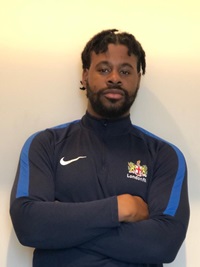
However, being a coach or professional within the game is a completely different experience. Most of the time, you are the only employee in the room who is black, sometimes one of a few. Despite seeing so many black elite footballers, the disparity is there for all to see. I may not have realised this at the start, but you can take this experience and make it positive. I have become a person who is a role model to show others that you can do it and it is always important to keep pushing. You can change the vision of the world of football, to make sure that the most inclusive sport is now representative for all. I have had some luck, but it is down to my skill, passion and hard work to be in the positions I hold.
I hope people read this and believe that if they aspire to be great then they can be because the door is now open. Hopefully, I will continue to keep changing the game to smash the glass ceiling for anyone looking to be a coach, tutor or member of a professional organisation that shapes football.
I am currently a coach at AFC Wimbledon, FA Affiliate Tutor and Workforce Development Officer at London FA, with aspiration for many more.
Aquila Burgess, London FA Football Development Manager
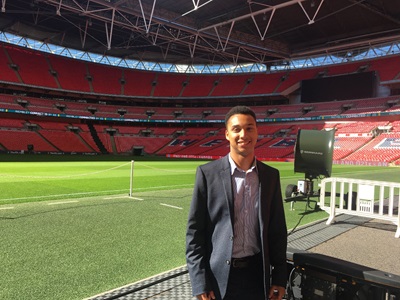
Throughout my life, it was not a smooth journey to get to where I am today. Equality is about support, opportunities, chances and listening to what people have to say – which hasn’t always been what I’ve experienced. I have experienced injustices and I have seen prejudice from people judging me for the colour of my skin, my name or for the way I have my hair.
I am currently the Football Development Manager at London FA and proud to be helping develop football in the most diverse areas of the country. There are clubs doing great work to promote the need for change, and we need to continue to celebrate and highlight their stories, not just throughout Black History Month but the whole year. As part of my role, I help lead on our Youth Council who this season are looking at tackling discrimination by helping to provide a youth perspective and increase equality and diversity across our clubs.
I believe this change needs to happen with all organisations and forms of society across the country. This could be through developing equality and diversity policies, to providing mandatory racial recognition/development/inclusion training for coaches of all levels, to ensuring people of BAME backgrounds are equipped with the opportunities that allow for key decision-making roles. The time for change is now.
Eddie Webb, London FA Council Member
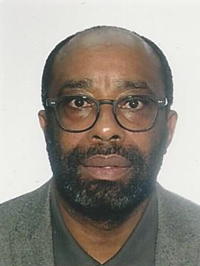
I received forty-year service to refereeing, and fifteen-year service for services as a Council member.
I am passionate about football and firmly believe that access to football, and progress within it, is available to people from every ethnic group, ensuring that everyone who is involved in football – referees, administrators, coaches, volunteers and spectators - has a great experience regardless of gender, ethnicity, ability, faith or age. My aim is to contribute to ensuring no barriers exist to anyone.
Jack Badu, London FA Council Member
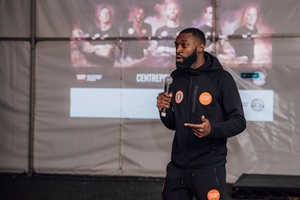
Growing up I had fantastic role models playing at JEFC (Junior Elite Football Club) and also family members that were incredibly supportive of my passion for playing football. As a young black footballer, I rarely felt that the colour of my skin would impact my access to participation, especially in London.
I finished University with five years of great coaching experience, but I found it hard to find even a voluntary role in football. This was not solely down to being black, but I do feel that the challenging name on a CV is far more likely to be overlooked as we all carry unconscious biases. How important is a name on a CV? Maybe that’s another conversation for another time…
After two months of being unemployed I began volunteering at Football Beyond Border at a school near my family home. For some this may have been a tough pill to swallow knowing they had five years of paid coaching experience and a Level 2 in Coaching, plus a degree in sports coaching and sociology. My parents' support made this a viable option, but I was still looking for paid work in football. Very quickly I moved from volunteer to a paid role as Head of Coaching! I loved working with FBB, the staff shared my passion for football but also believed in empowering the young people we were working with.
In May 2017 I then decided I would like a new challenge working with Street Football Association. Here, I then managed and delivered the Street football programs for Arsenal, Chelsea and the England women’s team. Working closely with both club foundations gave me a great insight into all the fantastic work that is going on in London, especially in regard to supporting young people at risk of homelessness. In my role I always wanted to be sure that I was trying to connect with organisations working with underrepresented communities. As a player I was not as conscious of it, but I now want to be someone that other black players and aspiring coaches can relate to.
Currently I’m a coordinator for Street Soccer London and Coach of Dulwich Hamlet Women’s team. This was something an aspiring footballer at 16 would never have considered but my experiences have opened my eyes to social issues and how they manifest in football
Louise McGing, London FA Council Member
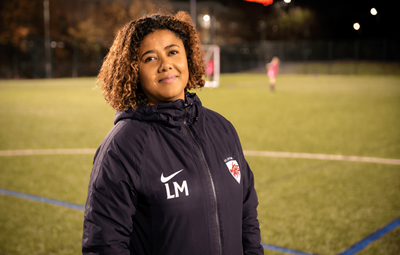
In 2017, my involvement with the club changed. The existing leadership departed the club. Their children had moved on. The club had shrank. There were just 2 teams, of 26 players and my daughters’ coach. The bones were enough to build on, so I decided to take over.
Of course, I knew football was predominately white and male orientated. And there were definitely a few negative comments from people who had never met me assuming I could not possibly take over a football club. But I knew I’d prove them wrong. My work history consisted of more than 25 years in leadership, marketing, analytical and financial roles. Once I set my mind to something – failure was not an option.
With the help and support of Head Coach Tom Cruse, we leapt from 26 players in December 2017 to over 700 by 2019. We have created what is arguably one of the largest female-only football clubs in grassroots football and also one of the most diverse – being 29% white British. Every single training session at AFC Leyton is a trip around the world.
I often wondered how AFC Leyton ended up so diverse. I was then asked by a parent “Have you considered that it was you?”! It is hard being a female in leadership, we have to work extra hard to prove ourselves and we are not permitted to make mistakes. Add into that being a black female, I just had not considered it being a positive. I had focused on the challenges I faced without recognising that families may be looking for a club with diverse leadership. A female only club, with a black woman at the helm.
I am incredibly proud to see the female game thriving. I am grateful for my coaching team, the parents for supporting the club and all the players who choose AFC Leyton. To see hundreds of happy faces every week and the improvements we have made is priceless.
We now have a women’s team for the first time, and I am also creating a safe and welcoming session for female asylum seekers that want to just play. I feel honoured to be a London FA council member. I will also be joining the new Equalities Board and I am a member of the women and girls’ advisory group. I thank the London FA for giving me a voice and for their support in my own personal journey.
Jamaal Horne, London FA Cups and Competitions Officer
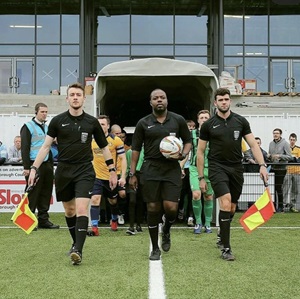
Slavery is a very dark shadow that will be forever casted over the heads of the black community along with the systematic oppression, prejudice and racism that has added extra challenges and obstacles to Black communities.
Black History Month provides such a special time line where successful Black people's achievements can be highlighted to inspire the next generation of all backgrounds on how to continue to pursue your dreams even where there are obstacles and challenges in the way and also to remind the Black Community that there are members of the White British Community who are in positions of power who are willing to hire and provide opportunities to people of any ethnic background.
Black History Month is an opportunity for the Black Community to be proud of their history, heritage and to be excited for a future as so many organisations pull together to eradicate racism.

